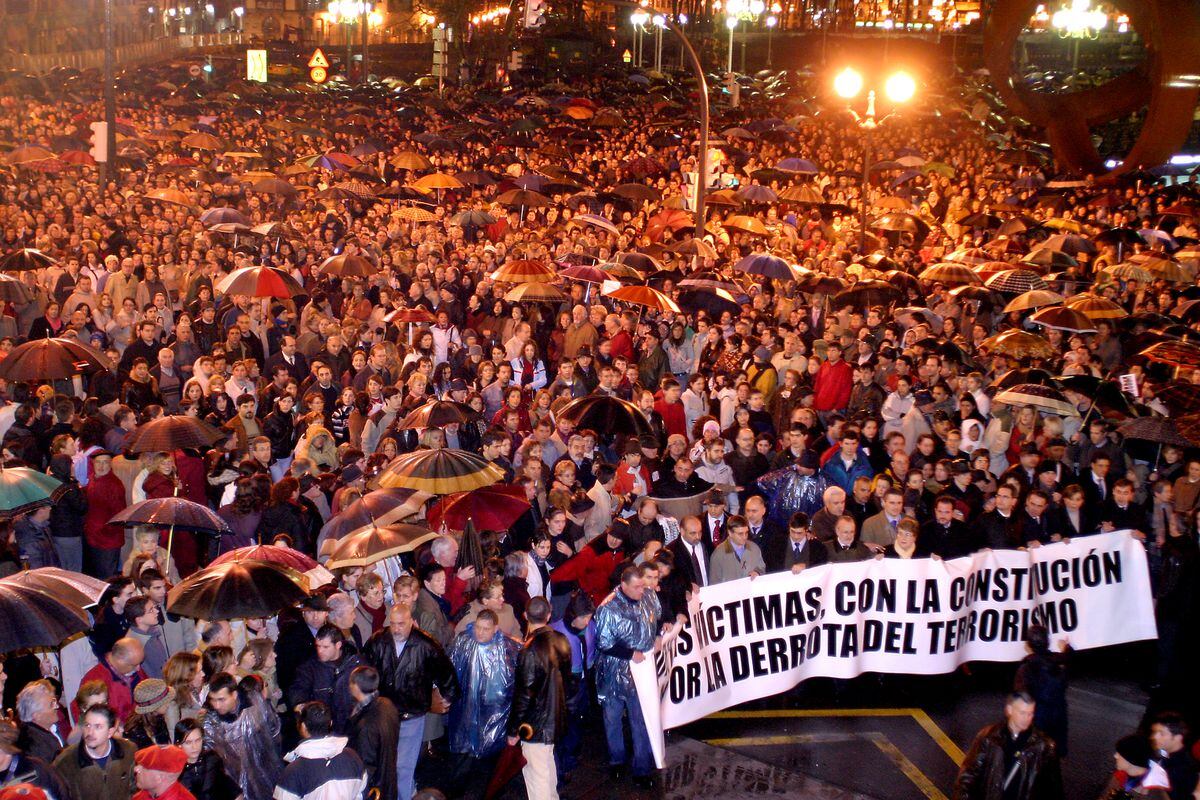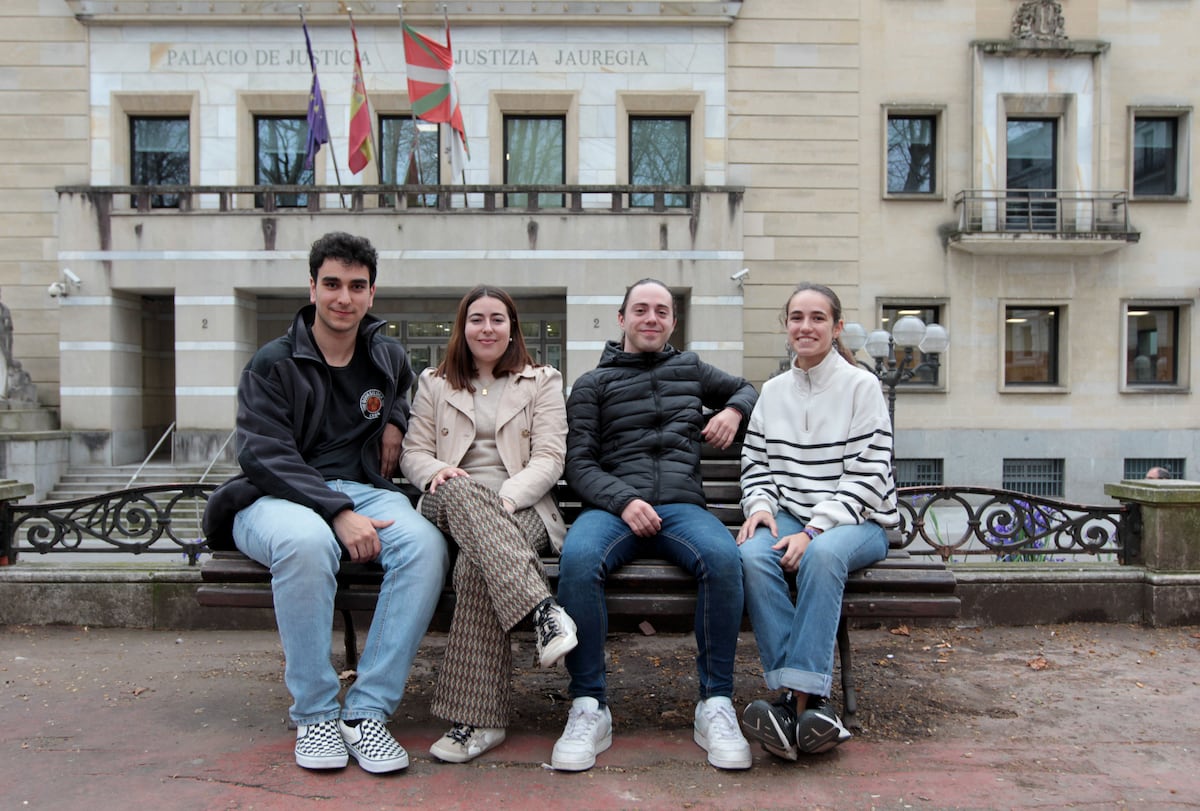Beatriz Artolazabal (3d) Minister of Equality, Justice and Social Policies of the Basque Government, along with those responsible for the report this Friday at its presentation in Bilbao. Luis Tejido (EFE)
The Basque Government presented this Friday a report from the Human Rights Institute of the University of Deusto (Bilbao), on the "injustice" suffered by members of the State Security Forces and Bodies and their families as a "consequence of terrorism of ETA”, which ended the lives of 357 of its members. The report considers “intolerable from a democratic sensibility” the “threat that ETA launched” against the forces of public order that “through collective intimidation”, were exposed to a situation of “social isolation”. The text recommends carrying out an exercise of "recognition" that "must be public and [...] official" and invites Basque society to "reflect" to build a "repairing and empathetic memory" for the "suffering" of these " innocent victims."
The Basque Government has endorsed the conclusions of the text "in a clear and loud way", according to what the Minister of Equality, Justice and Social Policies, Beatriz Artolazabal, has assured this Friday. The report was commissioned in 2020 by the Vice-Ministry of Human Rights, Memory and Cooperation of the Basque Executive and has 76 pages in which the "systematic violation of fundamental rights" that national police and civil guard suffered for 51 years, until the band abandoned arms in October 2011. Said violations affected, according to what was written, the “right to physical and moral integrity, to life, to liberty and security, to movement and freedom of residence, to education , to the free development of the personality and to the dignity of persons”.
Artolazabal has stated that the objective of this study is the search for "truth, memory and recognition to arrive at a model of coexistence based on the pillars of dignity, non-violence, non-repetition, political pluralism, respect and dialogue. Along the same lines, the document includes several recommendations. In the first place, to “make public” the suffering suffered by the victims in order to “recover democratic coexistence” of the Basque population, which, he continues, “has lived through an intolerable illness”. It also claims to consider "the value of diversity that was undermined by the terrorist group ETA and its social environment." By last,emphasizes the importance of "continuing and promoting" initiatives that bring the memory of the victims to the classroom and "encourage" the placement of plaques on public roads in those places where attacks took place: "With the work of repairing a culture of civic coexistence”, exposes the text.
The authors of the investigation have been three professors from the University of Bilbao who have interviewed 14 victims of attacks or their families, all belonging to the National Police and Civil Guard. All have highlighted, along with the social isolation they experienced, the "family bankruptcy" and "sentimental breakups" they suffered due to the "fear" of their partners to reside in the Basque Country. As well as the absence of support from Basque society: "The people interviewed lacked greater empathy from the whole of society towards their condition and suffering", describes the report, which also adds the "clear reproach" of the victims to the neighbors who ignored their situation under the premise of "they must have done something".
The document compiles data on attacks, deaths and injuries as a result of ETA actions. In total, the terrorist group killed 357 people from the State Security Corps and Forces. The majority were civil guards, 207 —58%— and 17 of their relatives also died due to the repeated attacks on the barracks where entire families lived. Specifically, five adults, two teenagers and 11 children. The other 150 murdered —42%— were members of the National Police. In addition, the report states that the ETA attacks left 711 injured, 43% of whom suffered injuries that caused "total permanent disability."
This work comes after other previous ones from the same Human Rights Institute were made public on people threatened by ETA, agents of the Ertzaintza —the Basque regional police—, and the policy of dispersion —which consisted of interning prisoners in prisons far from the your families-.
Next year a study will be presented on the consequences of the gang on prison officers.














